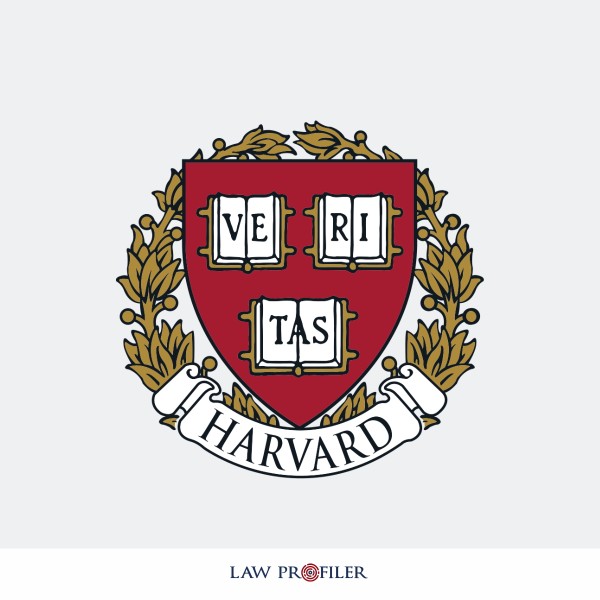
ARBITRARY SEVP DECERTIFICATION : HARVARD FILES FEDERAL SUIT TO DEFEND ACADEMIC FREEDOM by Lucien MAURIN
Harvard has filed suit in federal court following the abrupt and procedurally deficient revocation of its SEVP certification, affecting the legal status of over 7,000 international students. The University alleges multiple constitutional and administrative violations, characterizing the measure as a retaliatory act against its protected academic independence.
Harvard a engagé une action devant la District Court du Massachusetts à la suite de la révocation immédiate et sans procédure de sa certification SEVP, compromettant la situation de plus de 7 000 étudiants internationaux. L’Université invoque des violations manifestes du Premier Amendement, du droit au procès équitable et de l’Administrative Procedure Act, arguant que cette mesure constitue une rétorsion politique attentatoire à l’autonomie constitutionnelle des institutions académiques.
1. Context and Legal Stakes / Contexte et enjeux juridiques
In May 2025, Harvard University initiated legal proceedings before the U.S. District Court for the District of Massachusetts to challenge the Department of Homeland Security’s (DHS) immediate and unprecedented revocation of its certification under the Student and Exchange Visitor Program (SEVP), which had allowed it to enroll international students under F-1 and J-1 visas since 1954.
En mai 2025, l’Université Harvard a saisi la District Court du Massachusetts pour contester la révocation immédiate et inédite de sa certification SEVP par le Department of Homeland Security (DHS), laquelle lui permettait d’accueillir des étudiants internationaux sous visa F-1 ou J-1 depuis 1954.
2. Procedural violations / Violations procédurales
Harvard alleges that the revocation was carried out in violation of the procedural guarantees laid out in 8 C.F.R. §§ 214.3 and 214.4, which require that any withdrawal of certification be preceded by a Notice of Intent to Withdraw (NOIW), a 30-day response period, and access to an administrative appeal. None of these safeguards were respected.
Harvard soutient que cette révocation viole les garanties procédurales prévues aux articles 8 C.F.R. §§ 214.3 et 214.4 : la réglementation impose une notification préalable d’intention de retrait (Notice of Intent to Withdraw), un délai de réponse de 30 jours, et l’accès à un recours administratif. Aucune de ces étapes n’a été respectée.
3. Substantive violations and misuse of discretion / Violations de fond et détournement de pouvoir
The University further claims that the DHS failed to invoke any of the “valid and substantive reasons” for withdrawal listed in 8 C.F.R. § 214.4(a)(2). The decision was made without a finding of noncompliance with recordkeeping, reporting, or eligibility standards. Harvard argues that this constitutes an abuse of discretion under the Administrative Procedure Act (APA), § 706(2)(A)–(D).
L’Université fait également valoir que le DHS n’a invoqué aucun des “motifs valables et substantiels” énumérés par l’article 8 C.F.R. § 214.4(a)(2). La décision n’est fondée sur aucun manquement aux obligations réglementaires. Elle constitue dès lors un détournement de pouvoir au sens du Administrative Procedure Act, notamment de son article § 706(2)(A)–(D) interdisant les décisions arbitraires ou abusives.
4. Constitutional dimension: academic freedom and viewpoint discrimination / Dimension constitutionnelle : liberté académique et discrimination d’opinion
The most serious allegation is that the revocation is retaliatory, imposed after Harvard declined to comply with ideological demands from the federal government. These included requiring Harvard to restructure its governance, admissions, and hiring processes to ensure "viewpoint diversity" and exclude students deemed hostile to “American values.” According to Harvard, this constitutes viewpoint-based discrimination, in violation of the First Amendment.
L’allégation la plus grave est celle d’une sanction politique : la révocation ferait suite au refus de Harvard de se soumettre à des exigences idéologiques de la part de l’administration fédérale, notamment la restructuration de sa gouvernance, de ses procédures d’admission et de recrutement en fonction d’une “diversité des opinions”. Cela reviendrait, selon l’Université, à une discrimination fondée sur les opinions, prohibée par le Premier Amendement.
5. First Amendment case law and academic freedom / Jurisprudence constitutionnelle et liberté académique
Harvard relies on landmark Supreme Court precedents affirming that academic freedom is a core First Amendment value (Keyishian v. Board of Regents, 1967) and that administrative coercion targeting viewpoints constitutes unconstitutional state action (NRA v. Vullo, 2024). The case highlights the limits of executive power over private institutions receiving federal benefits.
Harvard s’appuie sur une jurisprudence constitutionnelle bien établie affirmant que la liberté académique est une composante essentielle du Premier Amendement (Keyishian v. Board of Regents, 1967), et que toute pression administrative motivée par une opinion constitue une action inconstitutionnelle de l’État (NRA v. Vullo, 2024). Cette affaire pose ainsi la question des limites du pouvoir exécutif à l’encontre des institutions privées bénéficiant de fonds publics.
6. Immediate effects and requested relief / Effets immédiats et mesures sollicitées
As a direct consequence of the revocation, over 7,000 international students and their dependents risk losing their lawful immigration status. Harvard is seeking injunctive relief to suspend the revocation and a declaratory judgment to restore its certification. The case also calls for reaffirming constitutional limits on politically motivated administrative action.
En conséquence immédiate de la révocation, plus de 7 000 étudiants internationaux et leurs familles se retrouvent en situation précaire. Harvard demande une mesure injonctive pour suspendre la décision, ainsi qu’un jugement déclaratoire pour rétablir sa certification. L’affaire invite également à réaffirmer les limites constitutionnelles à l’usage politique de l’administration fédérale.
---
#ConstitutionalLaw #AdministrativeLaw #DueProcess #FirstAmendment #AcademicFreedom #HigherEdLaw #EducationLaw #ImmigrationLaw #FederalLitigation #PublicLaw #LegalProfessionals #RuleOfLaw #SEVP #LegalCommunity #JudicialReview #LawAndPolicy #CivilLiberties #FreedomOfExpression #lawprofiler #Lawprofiler #lawfirm #legal